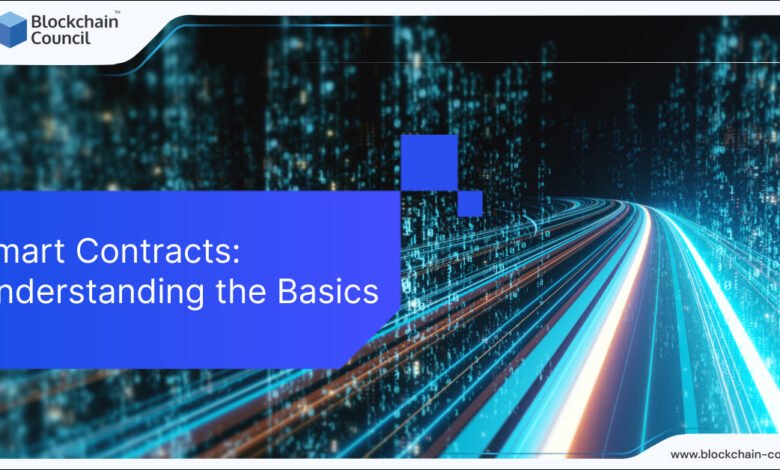
Contracts are an important part of our professional and personal lives, regulating many aspects of our interactions. They are crucial to the functioning of modern society.
Smart contracts are https://toastul.com/a vital component of blockchain technology. They make transactions more secure and organized, while also improving accessibility to applications running on these platforms. But what exactly is a smart contract?
Smart contracts are computer protocols or programs that automate transactions. They are stored on a blockchain and executed when certain conditions are met. They automate the execution of agreements, allowing all participants to ascertain the outcome without an intermediary or time delay.
Smart contracts are self-executing contracts written directly in code, which contain the terms of the agreement between the buyer and seller. According to Nick Szabo, an American computer scientist who created a virtual currency called “Bit Gold” in 1998, smart contracts are computerized transaction protocols that execute contract conditions. Their use makes transactions traceable, transparent, and irreversible.
Benefits of Smart Contracts
Smart contracts offer several advantages over traditional contracts. They are quick, efficient and accurate since they are digital and automated. This eliminates paperwork and errors that can occur when filling out documentation by hand.
Smart contracts also promote trust and transparency. They do not require the involvement of third parties, and encrypted transaction logs are exchanged among participants, which prevents tampering.
Since blockchain transaction records are encrypted, they are highly secure, making them extremely difficult to hack. Additionally, each entry on a distributed ledger is linked to the entries before and after it, making it even more challenging for hackers to change a single record.
Smart contracts eliminate intermediaries, thereby reducing time delays and fees, which results in significant savings.
How Do Smart Contracts Work?
To create a smart contract, business teams work with developers to define their criteria for the smart contract’s desired behaviour in response to specific events or circumstances. Simple events such as payment authorization or shipment receipt, or more complex operations such as determining the value of a derivative financial instrument, can be encoded using sophisticated logic.
The developers use a smart contract writing platform to create and test the logic. After the application is written, it is sent to a separate team for security testing. The contract is then deployed on an existing blockchain or other distributed ledger infrastructure once it has been authorized.
Finally, the smart contract is configured to listen for event updates from an “oracle,” which is a cryptographically secure streaming data source. Once it obtains the necessary combination of events from one or more oracles, the smart contract executes.
Smart Contacts and Flight Insurance
Consider a practical scenario where smart contracts are put to use. Rachel is waiting at the airport, and her flight is delayed. AXA, an insurance company, offers flight delay insurance through Ethereum smart contracts to compensate Rachel in such a case.
How does this work exactly?
The smart contract is connected to a database that records the status of the flight. It is created according to the terms and conditions set for the insurance policy. The condition set is a delay of two hours or more. The smart contract holds AXA’s money until this specific condition is met, as per the code. The smart contract is then submitted to the nodes on EMV (a runtime compiler to execute the smart contract code) for evaluation. All the nodes on the network executing the code must come to the same result, which is then recorded on the distributed ledger. If the flight is delayed by more than two hours, the smart contract self-executes, and Rachel is compensated. It’s important to note that smart contracts are immutable, meaning that nobody can alter the agreement.
Voting and Blockchain Implementation of Smart Contracts
Blockchain technology can be used to help solve issues with traditional voting systems. Centralized voting systems are vulnerable to identity fraud, miscounts, and bias from officials. However, using smart contracts, predetermined conditions can be set in the contract to ensure that voters can only vote using their own digital identity. All votes are securely recorded on the blockchain network, and the counting is done automatically, free from any manipulation or interference from third parties. Each voter is attributed to only one vote, and verification is done by users on the blockchain network. The voting process can be set up on a public or decentralized autonomous organization-based blockchain setup. This ensures that every vote is securely recorded and cannot be modified. Smart contracts also allow for the creation of voting systems that can add and remove members, change rules, and debate periods, and even alter the majority rule. For instance, decentralized autonomous organizations can use voting mechanisms to make decisions instead of relying on a central authority.
Blockchain Implementation of a Smart Contract and Crowdfunding
Ethereum-based smart contracts can be used to develop digital tokens that facilitate transactions. By designing and issuing your own digital currency, you can create a tradable token that uses a standard coin API. Ethereum has standardized ERC 2.0, which enables the contract to access any wallet for automatic exchange. This results in the creation of a tradable token with a fixed supply, essentially turning the platform into a central bank that issues digital currency.
Suppose you need funding to start a business. However, finding someone willing to lend money to a stranger can be challenging. This is where smart contracts come into play. With Ethereum, you can create a smart contract that holds funds from contributors until a specific date or goal is reached. Based on the outcome, the funds are released to the contract owners or sent back to the contributors. Traditional crowdfunding systems have numerous management issues, which can be addressed by utilizing a DAO (Decentralized Autonomous Organization) for crowdfunding. The terms and conditions are established in the contract, and each participant is given a token. Every contribution is recorded on the Blockchain.
Limitation of Smart Contracts
Smart contracts cannot obtain information about real-world events since they are not able to send HTTP queries. This was intentionally designed to ensure consensus, which is vital for decentralization and security.
Use Cases of Smart Contracts
Smart contracts can be utilized for various purposes, ranging from simple to complex. They are ideal for basic economic transactions like transferring funds from one point to another, as well as for smart access management in the sharing economy. The potential of smart contracts to revolutionize multiple industries is immense. Banking, insurance, energy, e-government, telecommunications, music, art, mobility, education, and many other sectors can benefit from the use of smart contracts.
Empowering Tomorrow’s Innovators: Navigating the Blockchain Landscape through Cutting-Edge Courses
As individuals and professionals seek to learn about blockchain, recognizing its transformative potential across diverse industries, specialized education becomes important. Enrolling in the best blockchain courses serves as a strategic gateway for aspiring blockchain developers. These courses provide comprehensive blockchain developer training, equipping learners with the skills and knowledge essential for navigating the intricacies of blockchain development. The synergy between blockchain education and the broader understanding of smart contracts underscores the holistic approach required to harness the full potential of decentralized technologies. With blockchain courses online, individuals gain practical insights into creating and deploying smart contracts, thereby fortifying their ability to contribute to the seamless execution of automated agreements.
The incorporation of blockchain education into one’s professional journey is not just a means of staying relevant, it is a proactive step toward fostering innovation and driving the evolution of the digital landscape. As industries increasingly leverage blockchain technologies, those trained with a robust foundation acquired through the best blockchain courses are poised to play important roles in shaping the future of decentralized systems and smart contract applications.
In conclusion, smart contracts and blockchain technology stand as a testament to the ongoing digital revolution, reshaping how we conceptualize and execute agreements. Smart contracts exemplify the potential for increased efficiency, transparency, and security in our transactions. The advent of Smart contracts within the blockchain landscape has ushered in a new era of trust and automation, eliminating the need for intermediaries and streamlining processes. The advantages offered by Smart contracts, ranging from increased security to reduced costs, underscore their transformative impact on industries spanning finance, insurance, and beyond.
For those eager to embark on this educational journey, Blockchain Council emerges as a beacon of knowledge and expertise. As an authoritative group of subject experts and enthusiasts, the Blockchain Council is dedicated to evangelizing blockchain research and development, use cases, and products. Recognizing the vast scope of blockchain technology, Blockchain Council provides blockchain courses online, equipping individuals with the skills needed to thrive in this rapidly evolving technological frontier. With companies increasingly adopting blockchain, Blockchain Council stands as a reliable platform, fostering a community of learners and professionals committed to shaping a future driven by the limitless potential of blockchain technology.



